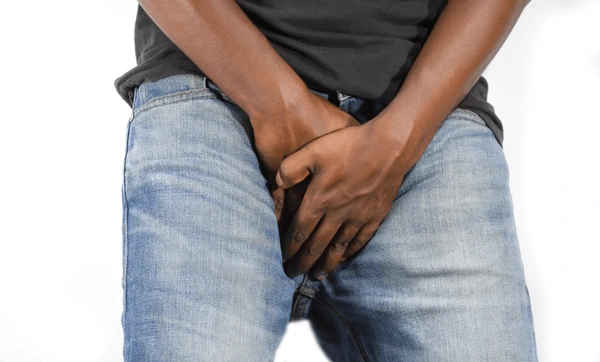Author's details
- Hakim A Abubakre
- BA (Hons) International Business Management, Msc Digital Marketing.
Reviewer's details
- Dr Kolade-Salawu Ayobami Nafisat.
- (FMCFM)
- General Hospital Moniya, Ibadan.

- Date Published: 2025-05-16
- Date Updated: 2026-01-02
Genital Warts
Key Messages
- Genital warts are a common sexually transmitted infection caused by certain strains of HPV, and almost all sexually active people will encounter HPV at some point.
- Warts appear as small bumps on the genital, anal, or mouth/throat areas and may cause itching, discomfort, or bleeding.
- Treatment removes visible warts but does not eliminate the HPV virus, so warts can return.
- HPV vaccination, condom use, limiting sexual partners, and regular STI screening are key prevention strategies.
- Seek medical attention for unusual bumps, pain, or if a partner is diagnosed, especially during pregnancy.
What are Genital Warts?
Genital warts are a common sexually transmitted infection (STI) caused by certain strains of the human papillomavirus (HPV). HPV infection is one of the most widespread infection globally—almost all sexually active people will have it at some point. In Africa, genital warts are becoming more recognized as awareness grows and access to reproductive healthcare improves.
These warts appear as small, flesh-coloured, reddish, or dark lumps or bumps on the genital or anal area. They may look flat or raised, and sometimes they cluster in a cauliflower-like shape. Genital warts can affect:
- The penis, scrotum, or perineum
- The vulva, vagina, cervix, or anal canal
- The mouth or throat (through oral sex)
(They are passed) HPV is transmitted mainly through skin-to-skin contact during vaginal, anal, or oral sex, including with someone who has no visible symptoms.
Warning Signs and Symptoms
While some people do not have symptoms, others may notice:
- Small, raised or flat bumps in the genital, anal, or inner thigh areas
- Itching, irritation, or discomfort around the affected region
- Bleeding during sex or when irritated
- Pain during urination or sex
- If warts are in or near the urethra, you may experience a change in urine flow or blood in the urine
- If around the anus, they may cause itching, pain, or bleeding
Symptoms may show up weeks to months after being exposed to the virus.
Self-Care and Treatment
Do not use over-the-counter wart treatments meant for hands or feet on your genitals. These can cause pain, burns, or worsen the condition. Always consult a healthcare provider.
Treatment options include:
- Prescription creams or ointments (like imiquimod or podophyllotoxin)
- Cryotherapy (freezing the warts)
- Electrocautery (burning off warts) or laser treatment
- Surgical removal in severe or resistant cases
Note: Treatment removes the warts, not the virus. The HPV (virus) may stay in your body, and warts can return.
When to Seek Medical Attention
See a doctor or visit a sexual health clinic if:
- You notice unusual bumps, itching, or pain in your genital area
- You have a partner who has been diagnosed with genital warts
- You are pregnant and have visible warts (to avoid delivery complications)
- You have discomfort during urination or changes in vaginal discharge
- You are worried about STIs in general
Early detection allows for easier treatment and less chance of spreading the virus.
Prevention
- HPV vaccination is one of the best ways to prevent genital warts. It is recommended for both boys and girls starting from ages 9–14. Speak to your local healthcare provider about availability in your region.
- Always use condoms or dental dams during sex to reduce the risk.
- Limit your number of sexual partners and avoid sex when visible warts are present.
- Do not share sex toys and clean them properly if used.
- Regular STI screening helps with early detection and treatment.
- Avoid smoking, as it weakens your immune system and slows recovery from HPV.
- World Health Organization (WHO). Human papillomavirus (HPV) and cervical cancer. 2023.
- Centers for Disease Control and Prevention (CDC). Genital Warts – STD Facts. Updated 2022.
- Africa CDC. STI Prevention and Control in Africa: Guidelines and Recommendations.
- Mbopi-Keou FX et al. (2022). “HPV and genital warts in Africa: A review.” African Journal of Reproductive Health.
- Scheinfeld N. Genital warts. Dermatology online journal. 2006;12(3).
- Buck Jr HW. Warts (genital). BMJ Clinical Evidence. 2010 Aug 13;2010:1602.
